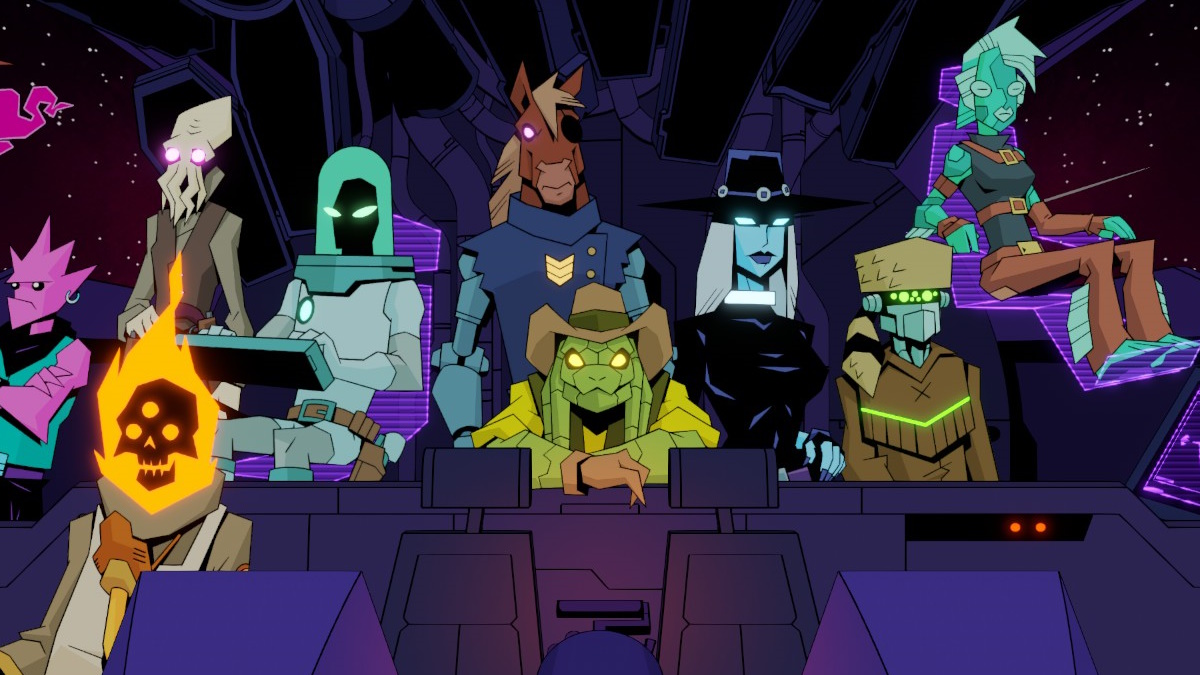GamesRadar+ Verdict
The novelty of a 13-character cast is a solid hook for Wild Bastards, but a myriad of streamlined and sidelined elements compromise its potential to the point of becoming a trip to outer space that you won't remember for long after hitting credits.
Pros
- +
All characters have a twist to offer
- +
Memorable voice acting
Cons
- -
The setting is sidelined
- -
Superficial challenge
- -
Monotone gameplay loop that lacks variety
Why you can trust GamesRadar+
Wild Bastards, the latest title by developer Blue Manchu, mixes a plethora of elements from the rogue genres. It's a bite-sized first-person shooter with a dash of board game-esque strategy and a lite rendition of a visual novel with social elements. The result is, without a doubt, a wide cast of ideas - almost as far-reaching as the 13-character roster it features. Unlike other hybrid-type examples of the genre, including the developer's excellent Void Bastards to which Wild Bastards is a spiritual successor, there are conflicting design choices that compromise an otherwise intriguing premise.
Roguelites can be overwhelming by nature. The pursuit of build synergies and endless tinkering to slice harder and survive for longer often clash with superfluous arrays of mechanics. Some, like Hades, offer options to ease the entry for newcomers without hindering their complexity for more seasoned players. Roguelikes such as Nuclear Throne are tough as nails, but you're not swamped with feature upon feature. The foundation is easy to pick up and gradually improve your skills by (lots of) trial and error.
Pardners in crime
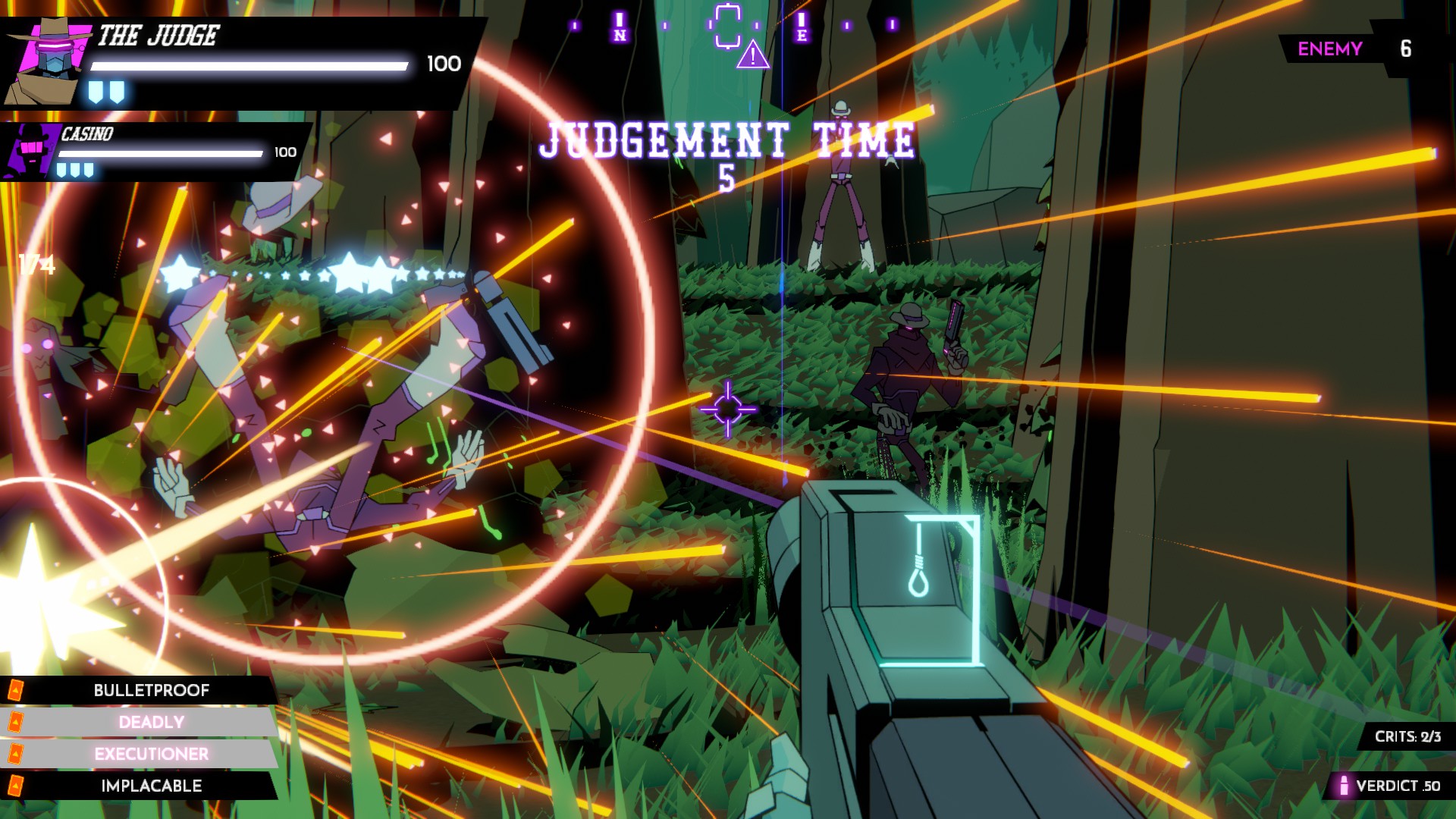
Release date: September 12, 2024
Platform(s): PC, PS5, Xbox Series X, Nintendo Switch
Developer: Blue Manchu
Publisher: Maximum Entertainment
With the genre being as overcrowded as it is, a modern Rogue-inspired game needs not just fine-tuned design, but a novelty element to stand out. In recent times, this search for novelty has led some developers to infuse genres with one another. Pacific Drive, for example, mixes roguelite progression with a painstakingly detailed car management sim, while Balatro is a roguelike influenced by poker and the genre's emblem emphasis on seeing numbers go up.
In Wild Bastards, you command groups of space outlaws who must progressively find and revive their former partners in crime while escaping from a cast of adversaries. The primary appeal is discovering what each outlaw has to offer, as they all have a unique weapon, upgrades, and signature special ability to experiment with. The structure of what constitutes a "run" is geared toward these rescue missions, with a new character waiting for you at the end of a galactic sector.
Each galactic sector is always procedurally generated, offering an increasing number of branching paths for you to choose from. Traversing through sectors reminded me of FTL, where you can assess your route options to get from point A to B and, on occasion, bump into a short decision-based event. However, Wild Bastards approach this in a far more linear fashion - events are sporadic and ever so challenging, mostly resulting in a character being injured or trading items. In essence, most nodes will take you to a planet, to which you have to descend and then find the exit to warp back again to your ship. Combat encounters on planets are the one chance to take control of your outlaws in first person, shooting down enemies in bite-sized arena encounters. And when I say bite-sized, I mean anything from a few minutes to a few seconds.
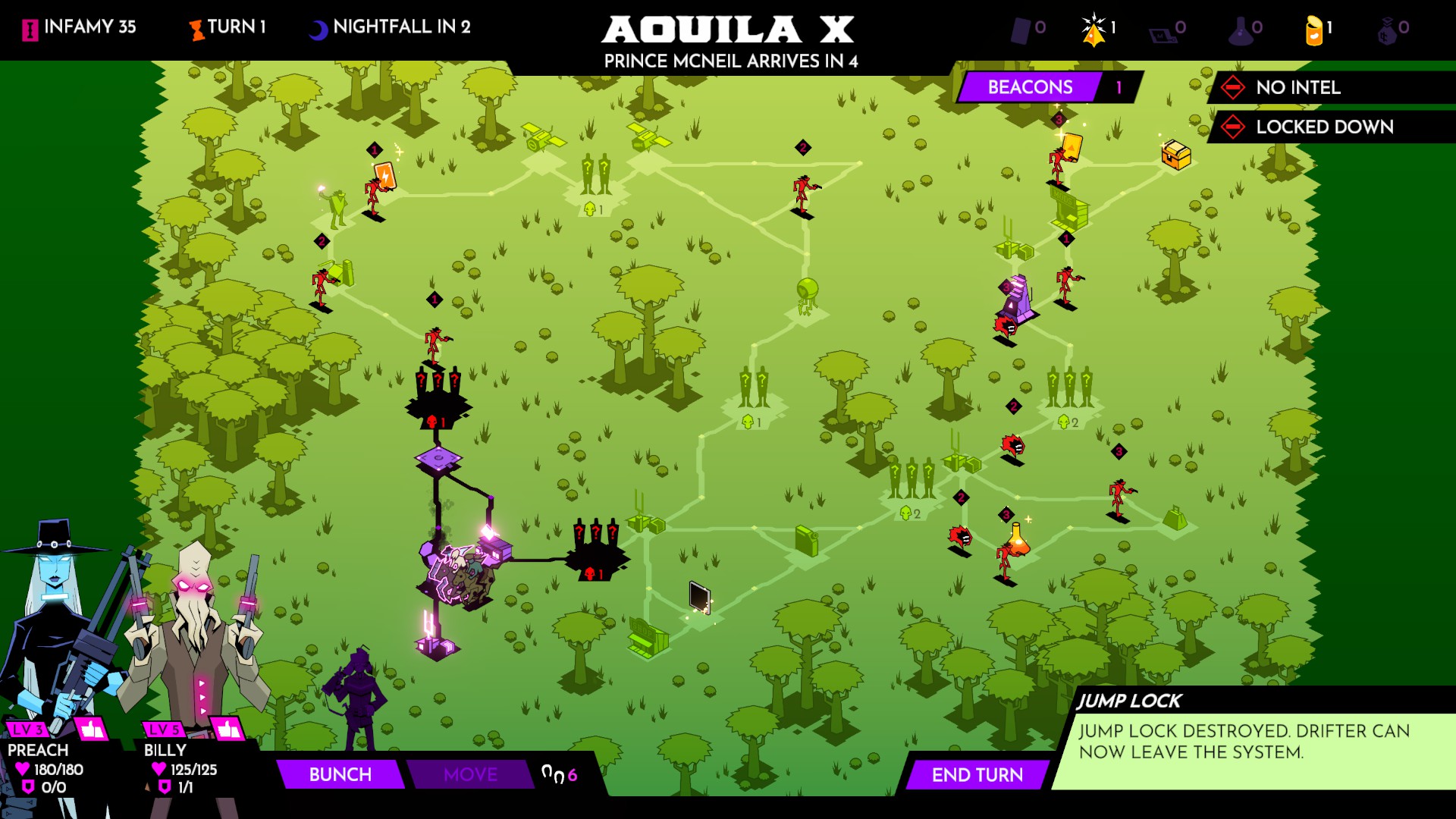
In order to level up a character, you need to manually pick cards scattered during the exploration phase on a planet - the latter is akin to a board game, in which you move your units around during your turn. Each outlaw has ace, core ace, and a charged ace cards. Regular aces are picked between two to three options, while core aces are strong traits that are usually related to the character's weapon or ability. As for the charged ace, it's a limited-use passive that needs some time to recharge and can be replaced. You can't fully upgrade each character, which leads to subtle yet engaging decision-making when exploring sectors.
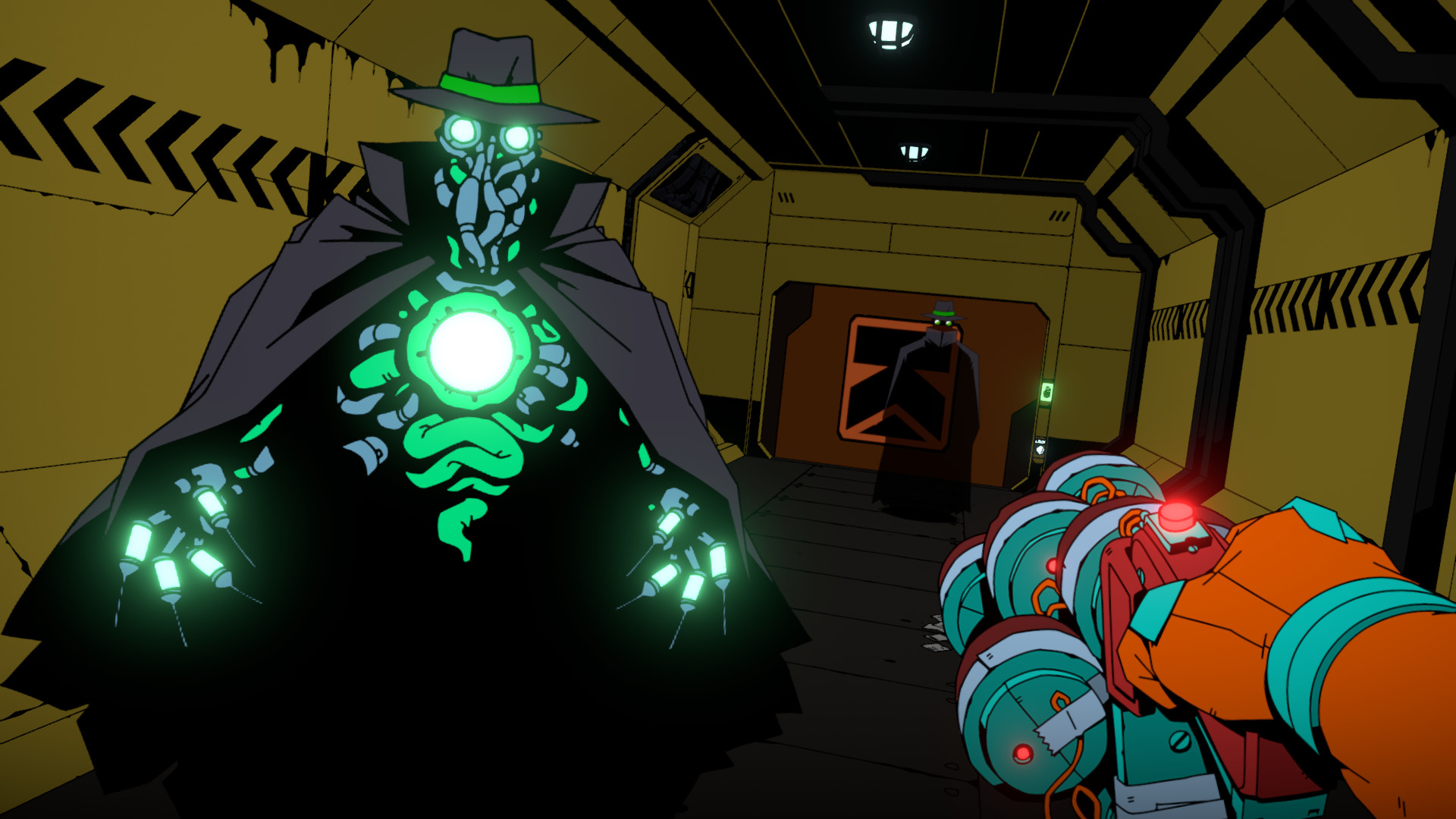
After reviewing Void Bastards back in 2019, despite countless roguelites in the years between, it has stuck with me ever since. Gunfights are tense, experimentation is encouraged and rewarded, and the science-fiction setting wrapped in a comic book-style cel-shading gels greatly with its cosmic horror and peculiar crude humor. It's a shame Wild Bastards doesn't come together like its influence.
The first handful of space rascals you have access to are fairly serviceable but don't do much to stand out. Rosa is a gunslinger with two pistols that can create a decoy for a few seconds, while Casino has a short shotgun and the ability to automatically kill one enemy at random. These special skills are activated by picking up and using an item during arena encounters, and you can only have one or two characters at the same time in fights, so the strategy is always to search for these pickups as often as you can and switch between characters depending on which enemies you're facing.
Weekly digests, tales from the communities you love, and more
Eventually, I found my go-to outlaws. Some of the ones I favored simply had a weapon with very few drawbacks. Sarge, for example, can summon a shield that protects him from most projectiles, which in itself is kind of boring. His rifle, however, has an absurdly long range, a fast fire rate, and decent ammo size. I was often able to deal with entire encounters without switching to the second outlaw. Others, like the snake Hopalong, can use a lasso to capture and strangle individual enemies, even the tougher ones, while Roswell's ability lets you bounce against the floor and back up to the air for a few seconds, staying away from danger and taking down multiple enemies with each plunge.
Tame lasso
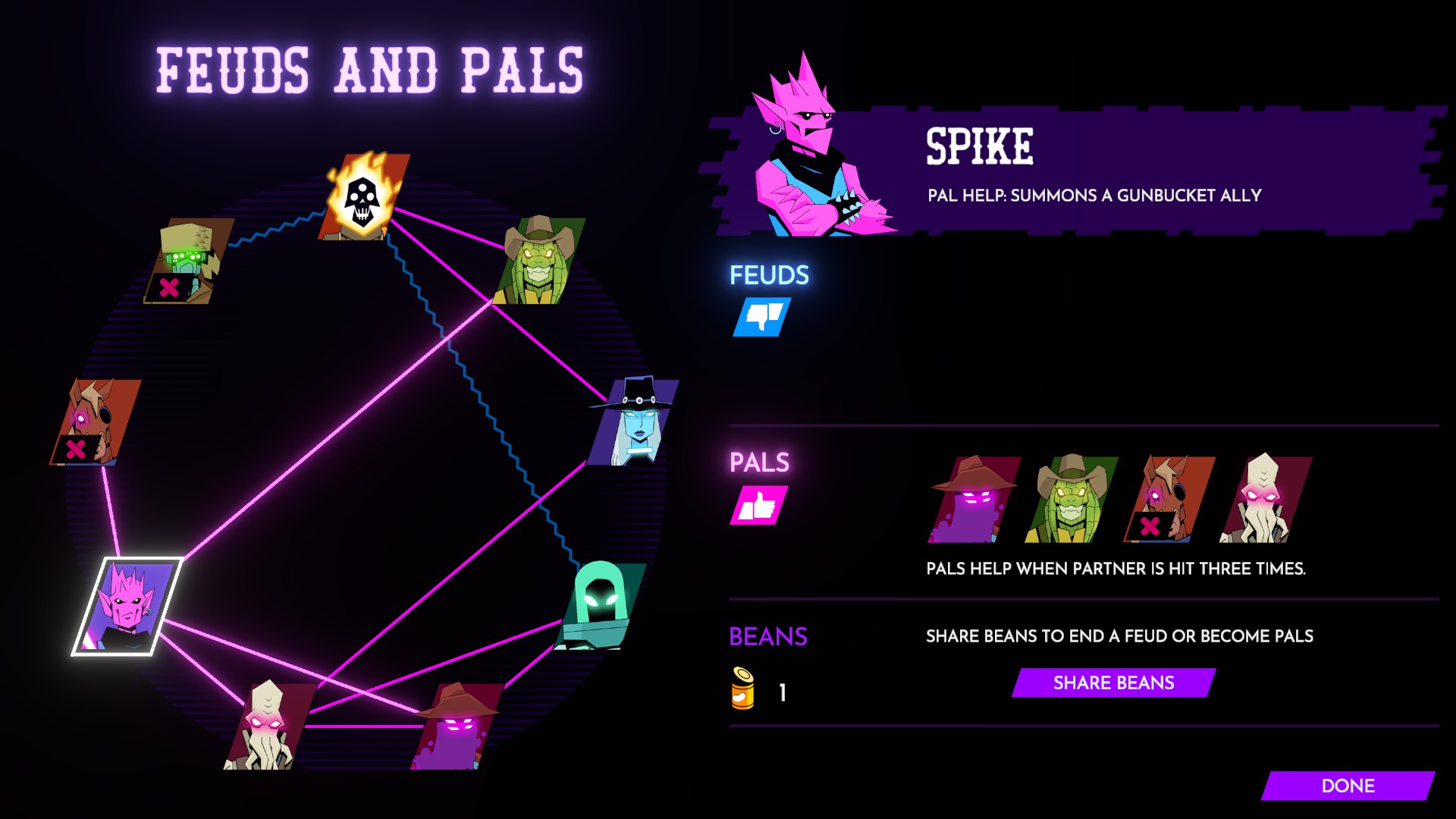
As the crew grew in size, I began to wonder how the game's structure would work around so many options available. Each world allows for a certain number of characters at the same time, usually from two to four grouped up in pairs. Sometimes, as you're descending on a planet, an outlaw can be randomly scattered and find themself displaced around the board-game map, which creates a temporary division until you reunite with them. For the most part, it's the story that gets in the way, juggling your available options for spoiler reasons, as well as the relationship mechanic.
The outlaws can become pals or get into a feud with each other depending on your actions. The former usually occurs when you rescue a character that was scattered on a planet, and makes it so they have a special attack if their pal is injured three times during a fight. The latter, which is the result of doing the opposite, makes it so those two characters can't be part of the same group to explore a planet until you've remedied the feud. While interesting on paper, there isn't enough depth to it – you just need to use a can of beans, found as loot or purchased in stores, to restore a relationship. It's not so much about adding social tension as it is about solving a temporary nuisance.
The relationship element is just one of many ideas that aren't explored in a fulfilling way. Most of what's interesting in Wild Bastards ends up being forgettable, either by being over-streamlined or sidelined. The concept of planets functioning like a board game intrigues, but they quickly become repetitive and lack tension for planning escape routes. Combat encounters are too short, and there's no exploration to be done aside from item pickups. The sense of challenge is lost with enemy variety being somewhat artificial – you mostly deal with a set of archetypes that evolve in subtle ways – while danger is dictated by the elemental damage of foes against the resistances or lack thereof of the characters you're using.
When compared with Void Bastards, it's unfortunate that this spiritual successor doesn't leave a stronger impression. Aside from memorable voice acting, the 13 characters aren't given room to become more than just a few occasional banters. The setting, a high point of Void Bastards, lacks a cohesive purpose here. While both games are clearly different, even if you ignore Wild Bastards being any kind of spiritual successor, it's not much of a standout amidst others in the genre. There's absolutely a strong case for having more roguelites explore streamlined structures while offering similar thrills to their biggest, more complex influences. Wild Bastards presents interesting ideas along these lines, but they end up scattered across outer space, never quite managing to land on common ground.
Wild Bastards was reviewed on PC, with a code provided by the publisher.

Diego is a freelance journalist from Argentina who learned English thanks to video games. He now primarily covers them for the New York Times, Rolling Stone, Vulture, Polygon, and more. He also founded Into the Spine and co-hosted the Turnabout Breakdown podcast.
